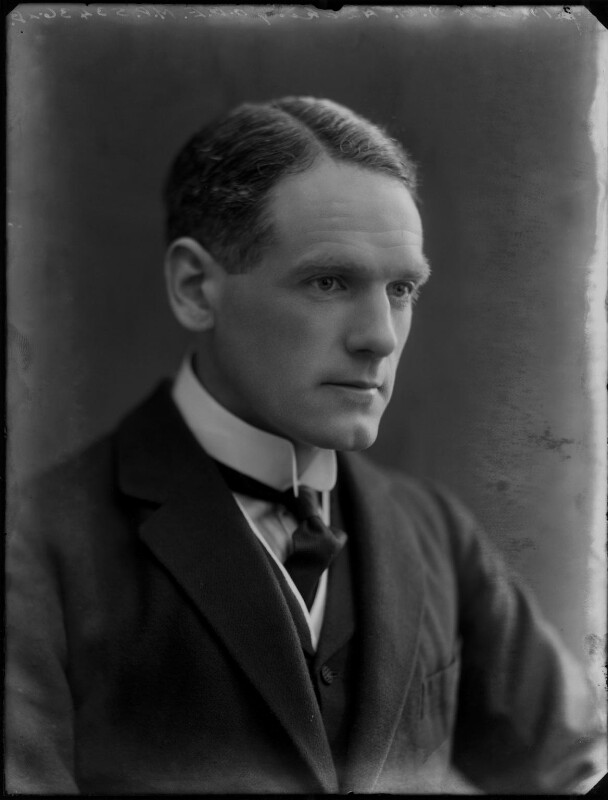|
1913 Chorley By-election
The Chorley by-election was a Parliamentary by-election held on 19 February 1913. It returned one Member of Parliament (MP) to the House of Commons of the United Kingdom, elected by the first past the post voting system. Although it was a safe Unionist seat which was held, the reduction in the Unionist majority was notable. Vacancy The Conservative MP since 1895 was Lord Balcarres. Upon the death of his father on 31 January 1913, he inherited the title of the Earl of Crawford and a seat in the House of Lords. This meant that he had to resign his seat in the House of Commons. Electoral history The Conservative candidate had won every election here since the seat was created in 1885. Balcarres's victory margin at the last election was comfortable. Candidates *On 8 February the Unionists adopted 63-year-old Sir Henry Hibbert to defend the seat. He was standing for parliament for the first time. He was Chairman of Lancashire County Council and had been Mayor of Chorley from ... [...More Info...] [...Related Items...] OR: [Wikipedia] [Google] [Baidu] |
Chorley (UK Parliament Constituency)
Chorley is a constituency in Lancashire represented in the House of Commons of the UK Parliament since 1997 by Lindsay Hoyle. Hoyle was originally elected for the Labour Party, but in 2019 became the Speaker, making him unaffiliated. Constituency profile Chorley constituency consists of the majority of the borough of Chorley. As well as the central market town of Chorley itself, the seat extends into southern Lancashire rural hinterland with three major villages and minor villages. Chorley's expansion is assured with the building of Buckshaw Village, an urban development sprawling over the former Royal Ordnance Site east of Leyland in the seat. Boundaries 1885–1918: The Sessional Division of Leyland Hundred, and part of the Sessional Division of Leyland. 1918–1950: The Municipal Borough of Chorley, the Urban Districts of Adlington, Croston, Leyland, and Withnell, the Rural District of Chorley, and in the Rural District of Wigan the civil parishes of Haigh, Parbold, ... [...More Info...] [...Related Items...] OR: [Wikipedia] [Google] [Baidu] |
Third Irish Home Rule Bill
The Government of Ireland Act 1914 (4 & 5 Geo. 5 c. 90), also known as the Home Rule Act, and before enactment as the Third Home Rule Bill, was an Act passed by the Parliament of the United Kingdom intended to provide home rule (self-government within the United Kingdom) for Ireland. It was the third such bill introduced by a Liberal government during a 28-year period in response to agitation for Irish Home Rule. The Act was the first law ever approved by the Parliament of the United Kingdom that provided for a devolved government in any part of the UK proper (as opposed to colonial territories). However, the implementation of both it and the equally controversial Welsh Church Act 1914 was formally postponed for a minimum of twelve months with the beginning of the First World War. The continuation of the war beyond 1915 and subsequent developments in Ireland resulted in further postponements, meaning that the Act never became effective; it was finally superseded by a fourt ... [...More Info...] [...Related Items...] OR: [Wikipedia] [Google] [Baidu] |
By-elections To The Parliament Of The United Kingdom In Lancashire Constituencies
A by-election, also known as a special election in the United States and the Philippines, a bye-election in Ireland, a bypoll in India, or a Zimni election (Urdu: ضمنی انتخاب, supplementary election) in Pakistan, is an election used to fill an office that has become vacant between general elections. A vacancy may arise as a result of an incumbent dying or resigning, or when the incumbent becomes ineligible to continue in office (because of a recall, election or appointment to a prohibited dual mandate, criminal conviction, or failure to maintain a minimum attendance), or when an election is invalidated by voting irregularities. In some cases a vacancy may be filled without a by-election or the office may be left vacant. Origins The procedure for filling a vacant seat in the House of Commons of England was developed during the Reformation Parliament of the 16th century by Thomas Cromwell; previously a seat had remained empty upon the death of a member. Cromwell devi ... [...More Info...] [...Related Items...] OR: [Wikipedia] [Google] [Baidu] |
1910s In Lancashire
Year 191 ( CXCI) was a common year starting on Friday (link will display the full calendar) of the Julian calendar. At the time, it was known as the Year of the Consulship of Apronianus and Bradua (or, less frequently, year 944 ''Ab urbe condita''). The denomination 191 for this year has been used since the early medieval period, when the Anno Domini calendar era became the prevalent method in Europe for naming years. Events By place Parthia * King Vologases IV of Parthia dies after a 44-year reign, and is succeeded by his son Vologases V. China * A coalition of Chinese warlords from the east of Hangu Pass launches a punitive campaign against the warlord Dong Zhuo, who seized control of the central government in 189, and held the figurehead Emperor Xian hostage. After suffering some defeats against the coalition forces, Dong Zhuo forcefully relocates the imperial capital from Luoyang to Chang'an. Before leaving, Dong Zhuo orders his troops to loot the tombs of the Ha ... [...More Info...] [...Related Items...] OR: [Wikipedia] [Google] [Baidu] |
1913 In England
Events January * January 5 – First Balkan War: Battle of Lemnos (1913), Battle of Lemnos – Greek admiral Pavlos Kountouriotis forces the Turkish fleet to retreat to its base within the Dardanelles, from which it will not venture for the rest of the war. * January 13 – Edward Carson founds the (first) Ulster Volunteers, Ulster Volunteer Force, by unifying several existing Ulster loyalism, loyalist militias to resist home rule for Ireland. * January 23 – 1913 Ottoman coup d'état: Ismail Enver comes to power. * January – Stalin (whose first article using this name is published this month) travels to Vienna to carry out research. Until he leaves on February 16 the city is home simultaneously to him, Hitler, Trotsky and Josip Broz Tito, Tito alongside Alban Berg, Berg, Freud and Jung and Ludwig Wittgenstein, Ludwig and Paul Wittgenstein. February * February 1 – New York City's Grand Central Terminal, having been rebuilt, reopens as the ... [...More Info...] [...Related Items...] OR: [Wikipedia] [Google] [Baidu] |
1913 Elections In The United Kingdom
Events January * January 5 – First Balkan War: Battle of Lemnos (1913), Battle of Lemnos – Greek admiral Pavlos Kountouriotis forces the Turkish fleet to retreat to its base within the Dardanelles, from which it will not venture for the rest of the war. * January 13 – Edward Carson founds the (first) Ulster Volunteers, Ulster Volunteer Force, by unifying several existing Ulster loyalism, loyalist militias to resist home rule for Ireland. * January 23 – 1913 Ottoman coup d'état: Ismail Enver comes to power. * January – Stalin (whose first article using this name is published this month) travels to Vienna to carry out research. Until he leaves on February 16 the city is home simultaneously to him, Hitler, Trotsky and Josip Broz Tito, Tito alongside Alban Berg, Berg, Freud and Jung and Ludwig Wittgenstein, Ludwig and Paul Wittgenstein. February * February 1 – New York City's Grand Central Terminal, having been rebuilt, reopens as the ... [...More Info...] [...Related Items...] OR: [Wikipedia] [Google] [Baidu] |
Elijah Sandham
Elijah Sandham (1875 – 7 May 1944) was an English Independent Labour Party (ILP) politician from Lancashire. He sat in the House of Commons from 1929 to 1931 as the Member of Parliament (MP) for Kirkdale division of Liverpool, and in 1934 he led the breakaway Independent Socialist Party. Career Sandham was elected in 1906 to Chorley Town Council, and remained active in the ILP, which at the time was affiliated to the Labour Party. At the 1918 general election he unsuccessfully contested the Chorley division of Lancashire, and in 1924 he stood in Liverpool Kirkdale, where he lost by a wide margin to the sitting Conservative Party MP Sir John Pennefather, Bt. However, Pennefather retired from the Commons at the 1929 general election, when Sandham defeated the Conservative candidate Robert Rankin with a slim majority of 793 votes (2.6% of the total). In Parliament In Parliament, he took a radical socialist viewpoint. In April 1930, the Commons debated on the Unemploym ... [...More Info...] [...Related Items...] OR: [Wikipedia] [Google] [Baidu] |
Douglas Hacking, 1st Baron Hacking
Douglas Hewitt Hacking, 1st Baron Hacking (4 August 1884 – 29 July 1950) was a British Conservative politician. Early life and military career Educated at Giggleswick School and Manchester University, he was commissioned in the East Lancashire Regiment in August 1914 and served two years in France during World War I. He was mentioned in despatches and was appointed to the Order of the British Empire as an Officer (OBE) in the 1919 New Year Honours. In World War II, from 1940 to 1944, he served with the 5th Battalion Surrey Home Guard. Political career Hacking was elected as Unionist Member of Parliament (MP) for the Chorley Division of Lancashire in December 1918 and sat for the constituency until June 1945. He was Parliamentary Private Secretary to Sir James Craig at the Ministry of Pensions in 1920 and at the Admiralty from 1920 to 1921; then to Sir Laming Worthington-Evans as Secretary of State for War from 1921 to 1922. He was Vice-Chamberlain of the Household fro ... [...More Info...] [...Related Items...] OR: [Wikipedia] [Google] [Baidu] |
1918 United Kingdom General Election
The 1918 United Kingdom general election was called immediately after the Armistice with Germany which ended the First World War, and was held on Saturday, 14 December 1918. The governing coalition, under Prime Minister David Lloyd George, sent letters of endorsement to candidates who supported the coalition government. These were nicknamed "Coalition Coupons", and led to the election being known as the "coupon election". The result was a massive landslide in favour of the coalition, comprising primarily the Conservatives and Coalition Liberals, with massive losses for Liberals who were not endorsed. Nearly all the Liberal MPs without coupons were defeated, including party leader H. H. Asquith. It was the first general election to include on a single day all eligible voters of the United Kingdom, although the vote count was delayed until 28 December so that the ballots cast by soldiers serving overseas could be included in the tallies. It resulted in a landslide victory for t ... [...More Info...] [...Related Items...] OR: [Wikipedia] [Google] [Baidu] |
Bonar Law
Andrew Bonar Law ( ; 16 September 1858 – 30 October 1923) was a British Conservative politician who served as Prime Minister of the United Kingdom from October 1922 to May 1923. Law was born in the British colony of New Brunswick (now a Canadian province). He was of Scottish and Ulster Scots descent and moved to Scotland in 1870. He left school aged sixteen to work in the iron industry, becoming a wealthy man by the age of thirty. He entered the House of Commons at the 1900 general election, relatively late in life for a front-rank politician; he was made a junior minister, Parliamentary Secretary to the Board of Trade, in 1902. Law joined the Shadow Cabinet in opposition after the 1906 general election. In 1911, he was appointed a Privy Councillor, before standing for the vacant party leadership. Despite never having served in the Cabinet and despite trailing third after Walter Long and Austen Chamberlain, Law became leader when the two front-runners withdrew rathe ... [...More Info...] [...Related Items...] OR: [Wikipedia] [Google] [Baidu] |
Clement Edwards
(Allen) Clement Edwards (7 June 1869 – 23 June 1938), usually known as Clem, was a Welsh lawyer, journalist, trade union activist and Liberal Party politician. Family and education Edwards was born in Knighton in Radnorshire, the son of a master tailor and draper, one of seven children. He was educated at the local school in Knighton, undertook private studies and also attended evening classes at Birkbeck Institute in London. In 1890, Edwards married Fanny Emerson, the daughter of the superintendent of Trinity House, Great Yarmouth. She died in 1920. Two years later Edwards was remarried, to Alice May Parker, a political colleague in the NDP. They had one son, John Charles Gordon Clement Edwards (1924–2004) who served in the Royal Naval Volunteer Reserve in the Second World War and later became a solicitor. In religion, although born into an Anglican family, Edwards became a Congregationalist and was considered a typical Welsh-speaking champion of nonconformist causes. ... [...More Info...] [...Related Items...] OR: [Wikipedia] [Google] [Baidu] |
Religious Education
In secular usage, religious education is the teaching of a particular religion (although in the United Kingdom the term ''religious instruction'' would refer to the teaching of a particular religion, with ''religious education'' referring to teaching about religions in general) and its varied aspects: its beliefs, doctrines, rituals, customs, rites, and personal roles. In Western and secular culture, religious education implies a type of education which is largely separate from academia, and which (generally) regards religious belief as a fundamental tenet and operating modality, as well as a prerequisite for attendance. The secular concept is substantially different from societies that adhere to religious law, wherein "religious education" connotes the dominant academic study, and in typically religious terms, teaches doctrines which define social customs as "laws" and the violations thereof as "crimes", or else misdemeanors requiring punitive correction. The free choice of r ... [...More Info...] [...Related Items...] OR: [Wikipedia] [Google] [Baidu] |





